On April 11, 2014, my husband I drove from Victoria-Gasteiz (located in the Basque region of Spain) and set out for the autonomous community of La Rioja. Driving into the Rioja valley is fairly straightforward and the scenery is spectacular.
 Our first stop was at the medieval city of Laguardia, located in the province of Alava. This 13th-century city is a perfect gateway to La Rioja. Perched up high and on rock foundations, the city remains intact. It is surrounded by walls, ramparts and has four entrance gates.
Our first stop was at the medieval city of Laguardia, located in the province of Alava. This 13th-century city is a perfect gateway to La Rioja. Perched up high and on rock foundations, the city remains intact. It is surrounded by walls, ramparts and has four entrance gates.
In the Middle Ages, Laguardia had 2,500 inhabitants. Although the town has not changed much, its population presently consists of 1,500 people. I certainly did not expect to find a well-conserved city such as Laguardia. We drove through one of its gates, Portada de los abuelos. Since vehicles are not allowed to drive through town, we parked here and began our walking tour.
We immediately noticed thirteenth-century reliefs outside the church, Iglesia de San Juan. Since I am so enamored of history, art and culture, you can imagine my amazement!
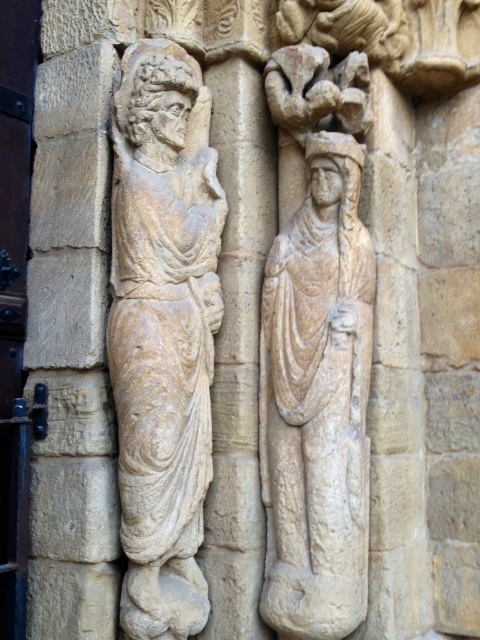 My husband and I immediately felt transported to centuries past. As we walked through the main plaza of Laguardia, I quickly obtained the town’s historical information.
My husband and I immediately felt transported to centuries past. As we walked through the main plaza of Laguardia, I quickly obtained the town’s historical information.
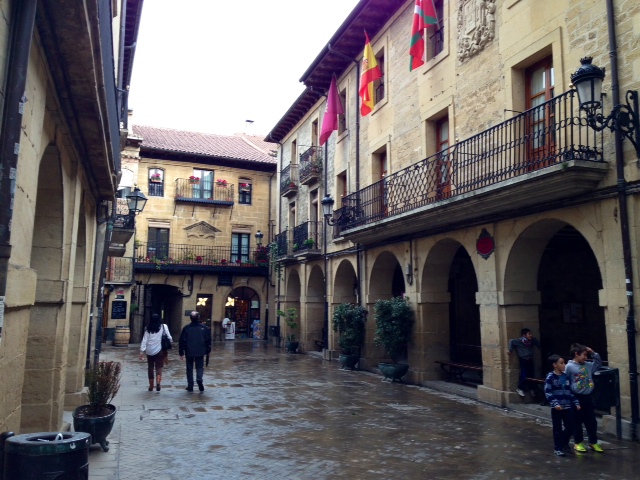 Although it is small, Laguardia’s streets are lined with bakeries, a few restaurants and bodegas or wineries.
Although it is small, Laguardia’s streets are lined with bakeries, a few restaurants and bodegas or wineries.
We visited Bodega El Fabulista – this is one of Laguardia’s most famous wineries.
Here, we were escorted to underground tunnels that were once used for food storage during times of war in the Middle Ages. When wine production took off in the region, these underground tunnels were found to be ideal for the fermentation of grapes.
I was astounded to discover (through our guide) that some of the floors inside Laguardia’s homes date back to the 15th and 16th-centuries.
As we treaded along ancient pavements, we noticed two tables holding some awesome sculptures. They were entitled, Esculturas de el viajero or The Traveler’s Sculptures. Aren’t they cool?
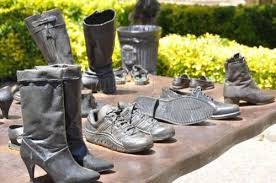 Our next stop left me flabbergasted – it was the wine bodega called Marques de Riscal , dubbed “The City of Wine”, located in the town of Elciego. From a distance, I immediately spotted the oeuvre of Frank O. Gehry (he also designed the Guggenheim Museum in Bilbao, Spain and the Walt Disney Concert Hall in Los Angeles). As I stood there with my mouth agape, I had no words to describe this architectural masterpiece.
Our next stop left me flabbergasted – it was the wine bodega called Marques de Riscal , dubbed “The City of Wine”, located in the town of Elciego. From a distance, I immediately spotted the oeuvre of Frank O. Gehry (he also designed the Guggenheim Museum in Bilbao, Spain and the Walt Disney Concert Hall in Los Angeles). As I stood there with my mouth agape, I had no words to describe this architectural masterpiece.
The building designed by Gehry is a hotel and not the winery itself. To me, the Hotel Marques de Riscal is a living, breathing marvel. The colors of the aluminum panels are symbolic of the wine produced here. Deep purple reminds us of red wine, while the gold panels stands for white wine. Finally, the silver panels represent the seal placed over the cork and bottle top. I think this is such an ingenious idea!
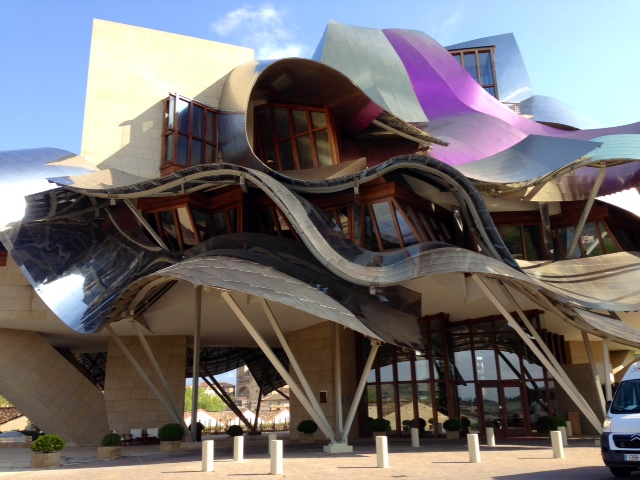 The hotel boasts about 43 rooms, including 9 executive suites. While rates are high, it is quite a treat to spend some quality time here. At sunset, while standing on their balconies with a glass of wine in hand, hotel guests can enjoy unsurpassed views of the vines, the town of Elciego and the Sierra de Cantabria – the local mountain range. There are two restaurants featuring the haute cuisine of La Rioja. The Restaurante Gastronomico Marques de Riscal features a list of 300 international wines.
The hotel boasts about 43 rooms, including 9 executive suites. While rates are high, it is quite a treat to spend some quality time here. At sunset, while standing on their balconies with a glass of wine in hand, hotel guests can enjoy unsurpassed views of the vines, the town of Elciego and the Sierra de Cantabria – the local mountain range. There are two restaurants featuring the haute cuisine of La Rioja. The Restaurante Gastronomico Marques de Riscal features a list of 300 international wines.
This brings us to the winery. One of the oldest wineries in the Rioja region, Marques de Riscal was founded in 1858 by Guillermo Hurtado de Amezaga. Today, this bodega exports 60% of its wines to nearly 100 countries.
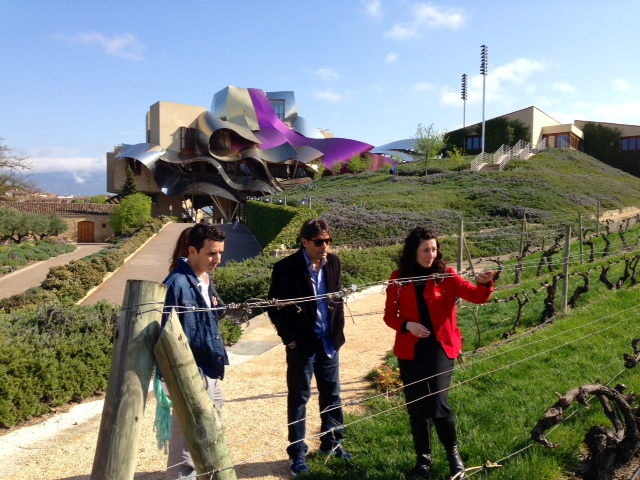 You’ll learn all the details of wine production through amazing tour guides. The interiors of the winery are astounding, not only because of the enormity of the production but also because they sparkle!
You’ll learn all the details of wine production through amazing tour guides. The interiors of the winery are astounding, not only because of the enormity of the production but also because they sparkle!
 One of my favorite parts of this wine tour was, of course, stepping into the wine shop and restaurant. Beginning with the personnel, there’s much that impressed me. Undoubtedly, Spaniards are extremely courteous to their visitors. At Marques de Riscal’s shop, I felt at home. The service I received here was beyond all of my expectations.
One of my favorite parts of this wine tour was, of course, stepping into the wine shop and restaurant. Beginning with the personnel, there’s much that impressed me. Undoubtedly, Spaniards are extremely courteous to their visitors. At Marques de Riscal’s shop, I felt at home. The service I received here was beyond all of my expectations.
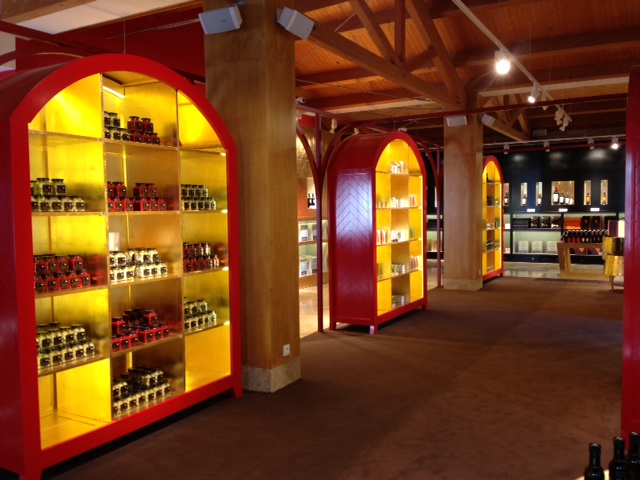 The wine selections are fantastic and the gastronomy items are delightful.
The wine selections are fantastic and the gastronomy items are delightful.
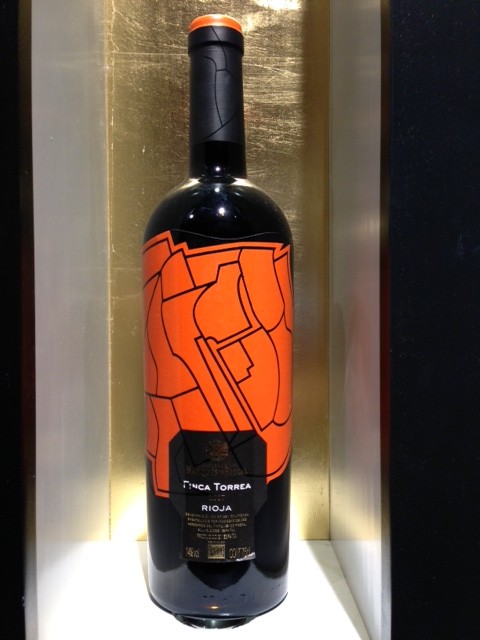 Have you ever heard of wine salt?
Have you ever heard of wine salt?
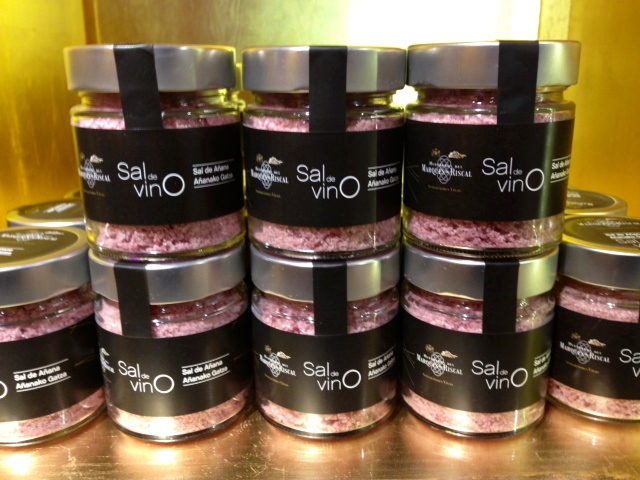 The wine shop restaurant looked so inviting. I didn’t get to enjoy any tapas (Spanish appetizers) here because our visit took place early in the morning. However, we’ll make some together in my upcoming culinary course.
The wine shop restaurant looked so inviting. I didn’t get to enjoy any tapas (Spanish appetizers) here because our visit took place early in the morning. However, we’ll make some together in my upcoming culinary course.
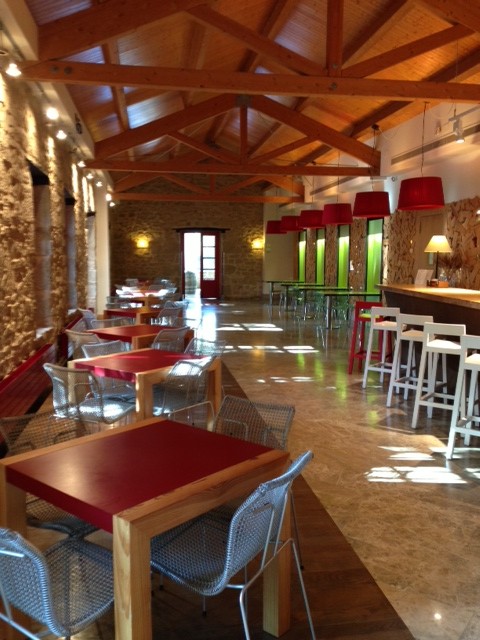 I suppose we’ll have to return to Marques de Riscal soon. It was fabulous!
I suppose we’ll have to return to Marques de Riscal soon. It was fabulous!
I highly recommend a trip to the medieval town of Laguardia and the winery, Marques de Riscal, both located in La Rioja region.
Also, be sure not to miss the Haro Wine Festival in the town of Haro, in La Rioja region. The celebration takes place on June 29, the feast day of the town’s patron saint, San Pedro. Dressed in white and adorned with red scarves, everyone follows a procession through town. After a mass, the wild ritual begins – everyone tosses wine on each other until they are completely drenched and turn PURPLE!
All Text & Photographs © 2014 Nancy DeLucia Real, with the exception of photographs re: Bodega El Fabulista and Haro Wine Festival above.



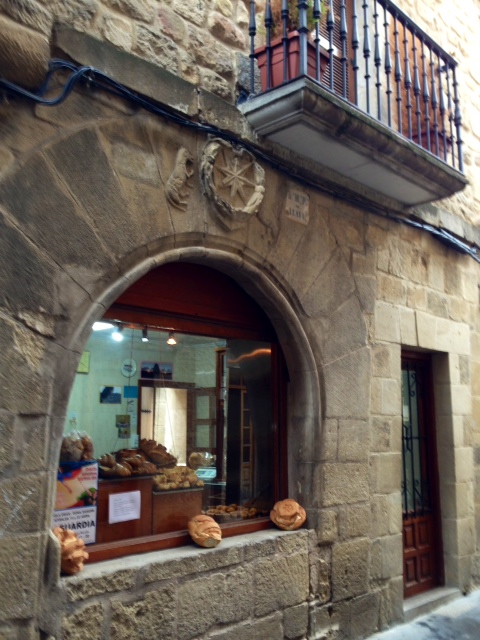


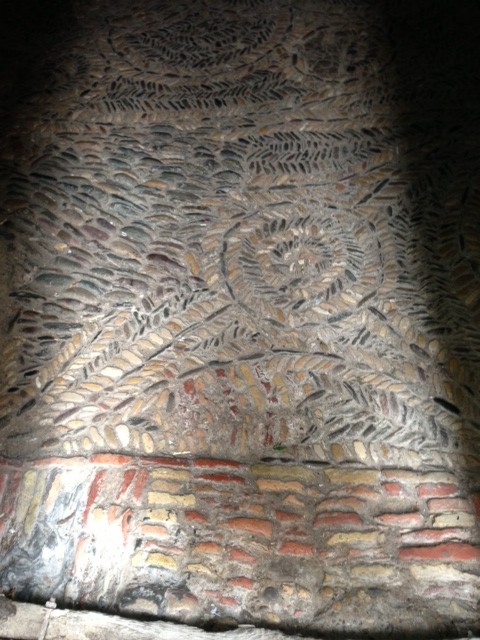

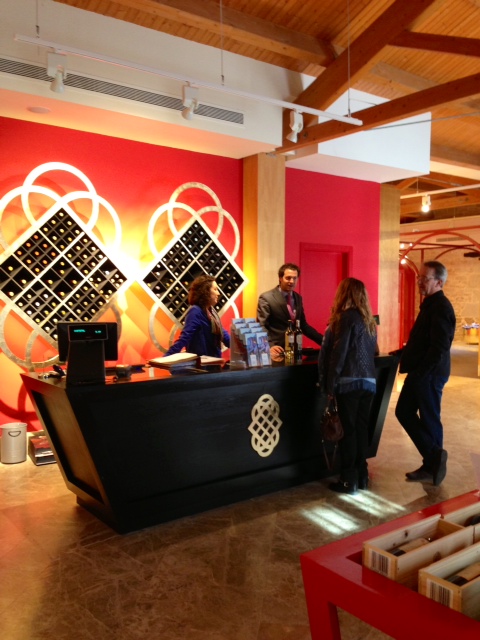
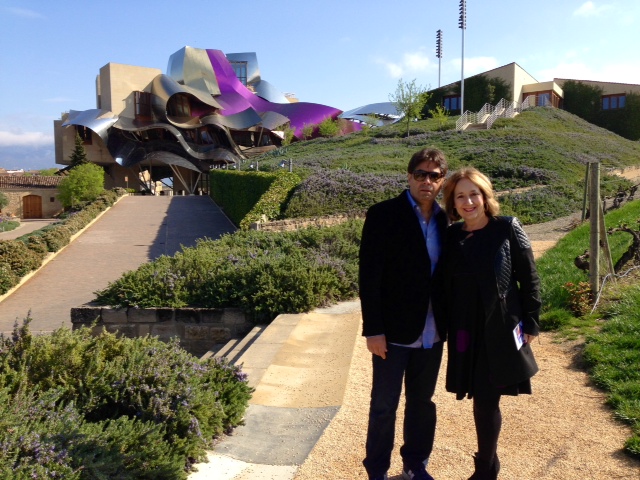

 Nancy DeLucia Real is an art historian and chef. She has led culinary courses at the Italian Cultural Institute, The Getty Center and The Getty Villa and is a former member of the Culinary Historians of Southern California. Nancy's gastronomy training took place in the heart of Italy under the tutelage of her grandmother. She has taught international cuisine at Williams Sonoma and Sur la Table Stores. Nancy's art history & culinary courses are ongoing at various institutions. She also teaches private cooking classes.
Nancy DeLucia Real is an art historian and chef. She has led culinary courses at the Italian Cultural Institute, The Getty Center and The Getty Villa and is a former member of the Culinary Historians of Southern California. Nancy's gastronomy training took place in the heart of Italy under the tutelage of her grandmother. She has taught international cuisine at Williams Sonoma and Sur la Table Stores. Nancy's art history & culinary courses are ongoing at various institutions. She also teaches private cooking classes. 

